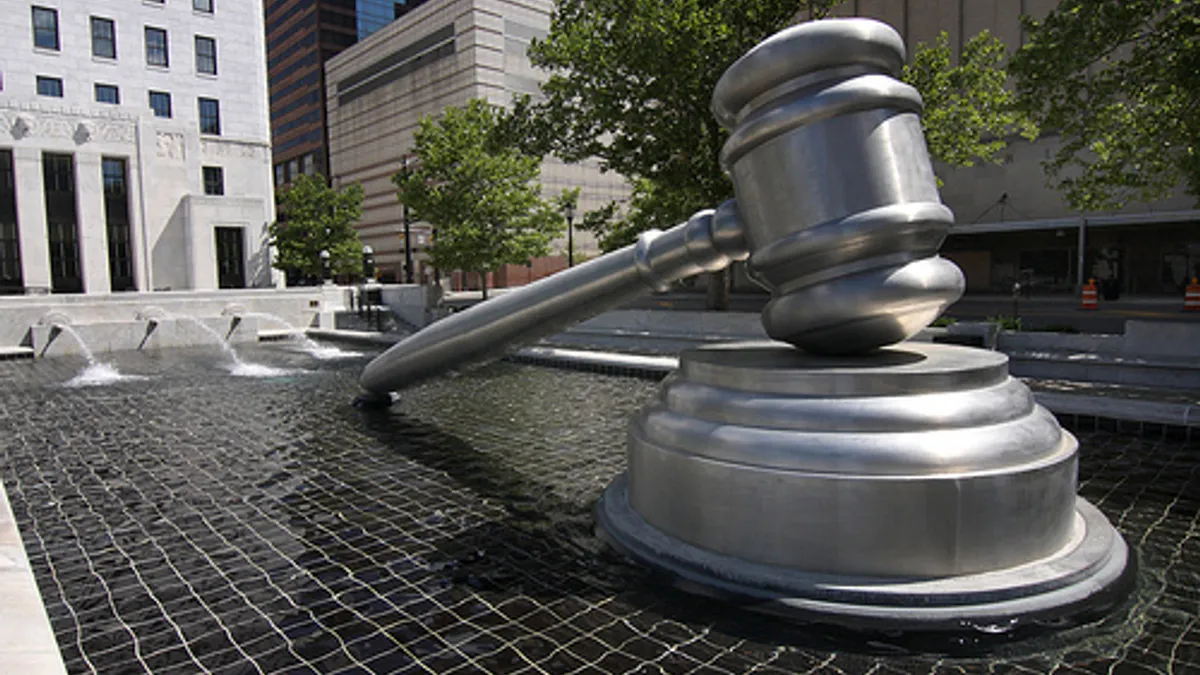Dive Brief:
- Boston Scientific will pay $188.6 million to 47 states and the District of Columbia to settle allegations that it deceptively marketed transvaginal surgical mesh devices to patients, the California Department of Justice announced Tuesday. The state's complaint alleges Boston Scientific misrepresented and failed to disclose the full extent of risks and complications associated with the products.
- The settlement follows last year's $344 million California court judgment against Johnson & Johnson for deceptive marketing of mesh devices and $60 million settlement between BD and most states resolving litigation over marketing of mesh products by the company's Bard subsidiary.
- Boston Scientific, in an emailed statement, said it did not admit to misconduct or liability in its settlement, and resolving the dispute was in the best interest of the company and shareholders.
Dive Insight:
Tens of thousands of women who received mesh implants reported serious complications from the devices in the decade leading up to FDA's decision in April 2019 to order manufacturers to halt sales of the products for the treatment of pelvic organ prolapse. Thousands of women have also filed product liability lawsuits against the manufacturers. Boston Scientific in its annual report last month counted about 54,000 such claims asserted against the company.
Boston Scientific and Danish company Coloplast were the last manufacturers to market transvaginal surgical mesh to treat prolapse, in which organs drop from their normal position. FDA determined that the two companies had not demonstrated reasonable assurance of the products' safety and effectiveness, which was required when the agency reclassified the devices as high-risk Class III in 2016.
The devices were first cleared in 1996 to treat stress urinary incontinence and in 2002 to repair pelvic organ prolapse.
Surgical mesh is still authorized for use in treating urinary incontinence as well as for transabdominal procedures to repair pelvic organ prolapse; FDA asserts that the benefit-risk profile of those treatments remains favorable. However, most manufacturers chose to exit the market after FDA began mandating post-market surveillance studies in 2012 to address safety and effectiveness concerns.
The state of California alleged in its complaint that Boston Scientific misrepresented or failed to disclose serious risks with the devices that included infection, scarring, urination dysfunction and incontinence. In its settlement with the states' attorneys general, Boston Scientific agreed to disclose significant complications associated with the mesh devices in marketing materials and during training for healthcare providers.
FDA has said that between January 2008 and October 2018, it found 10,391 Medical Device Reports citing serious injury, 806 citing device malfunction, and 77 citing death related to transvaginal mesh products. FDA also found mesh erosion or exposure occurred in about 11% to 18% of patients who had the procedure.
The agency has flagged adverse effects including pelvic pain, infection, bleeding and vaginal scarring in patients who received surgical mesh for transvaginal repair of pelvic organ prolapse.










